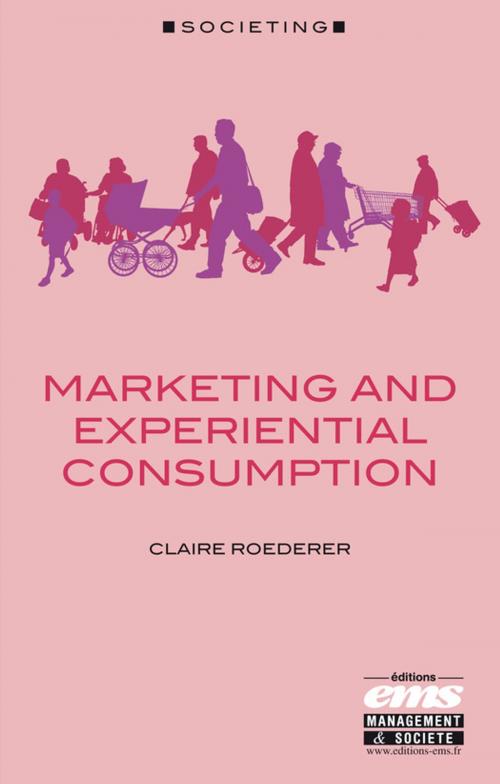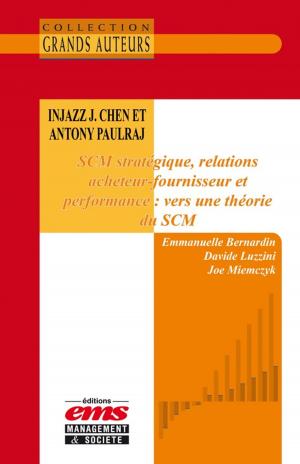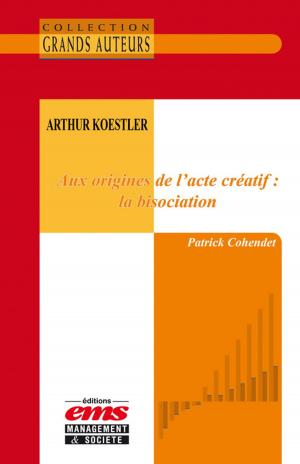| Author: | Claire Roederer | ISBN: | 9782847694840 |
| Publisher: | Éditions EMS | Publication: | May 2, 2013 |
| Imprint: | Éditions EMS | Language: | English |
| Author: | Claire Roederer |
| ISBN: | 9782847694840 |
| Publisher: | Éditions EMS |
| Publication: | May 2, 2013 |
| Imprint: | Éditions EMS |
| Language: | English |
Dimensions of experience as a key to successful experiential strategies
First discussed in the seminal articles by Holbrook and Hirschman, the experiential approach attempts to understand individuals’ reactions when they consume, with the idea that we seek to enjoy consumption experiences for the pleasure, the emotions and sensations they give us. This led to the notion of experiential marketing, which encouraged firms to gain a competitive edge by reviewing their offer in the light of the experience enjoyed by the consumers.
Over the last twenty years or so, both academia and business have become increasingly interested in the experiential aspects of consumption and the managerial approaches that attempt to take them into account.
However, twenty-five years after the beginnings of experiential marketing, and despite the great effort many manufacturers and retailers have put into developing it, the results have not always lived up to expectations in terms of market share and customer loyalty. A number of challenges remain in the implementation of experiential strategies and, more broadly, the added value expected from the experiential approach has not always materialised.
If we wish to persuade managers toadopt an experiential perspective by optimising their strategies’ chances of success,we need to offer them a well thought-through conceptualisation of the consumer experience, with various tools that can be used in all commercial contexts. This book sets out to do just that by exploring the notion of experience from a conceptual, methodological and strategic standpoint.
Marketing & experiential consumption offers a conceptualisation of experience based on four, empirically validated dimensions that are present in all experiences, whatever the context. The book gives new insights into the issue and offers managers new frameworks for their experiential strategy.
Dimensions of experience as a key to successful experiential strategies
First discussed in the seminal articles by Holbrook and Hirschman, the experiential approach attempts to understand individuals’ reactions when they consume, with the idea that we seek to enjoy consumption experiences for the pleasure, the emotions and sensations they give us. This led to the notion of experiential marketing, which encouraged firms to gain a competitive edge by reviewing their offer in the light of the experience enjoyed by the consumers.
Over the last twenty years or so, both academia and business have become increasingly interested in the experiential aspects of consumption and the managerial approaches that attempt to take them into account.
However, twenty-five years after the beginnings of experiential marketing, and despite the great effort many manufacturers and retailers have put into developing it, the results have not always lived up to expectations in terms of market share and customer loyalty. A number of challenges remain in the implementation of experiential strategies and, more broadly, the added value expected from the experiential approach has not always materialised.
If we wish to persuade managers toadopt an experiential perspective by optimising their strategies’ chances of success,we need to offer them a well thought-through conceptualisation of the consumer experience, with various tools that can be used in all commercial contexts. This book sets out to do just that by exploring the notion of experience from a conceptual, methodological and strategic standpoint.
Marketing & experiential consumption offers a conceptualisation of experience based on four, empirically validated dimensions that are present in all experiences, whatever the context. The book gives new insights into the issue and offers managers new frameworks for their experiential strategy.















